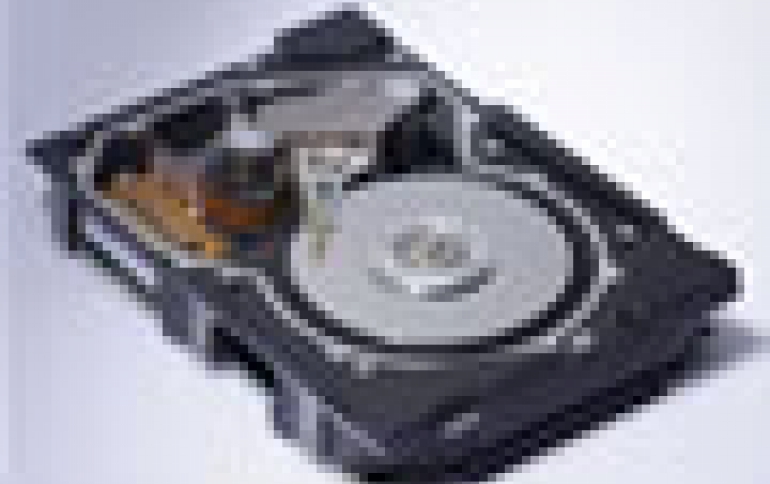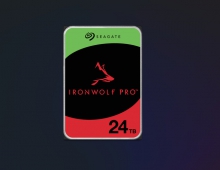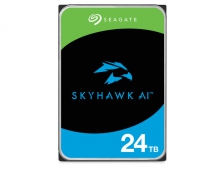
Seagate To Enter the SSD Market in 2009
Seagate plans to release its first SSD (solid-state drive) storage and 2T-byte hard drive next year, company CEO Bill Watkins said.
The company's first SSD product will be targeted at companies that need speedy storage and can afford to pay a premium for the expensive drives, since Seagate has no plans to release SSD drives for consumers, at least for now.
The release date and price information for the 2TB hard drive were not available.
"SSDs are not price-competitive yet," Watkins said. The storage market is driven by cost-per-gigabyte and though SSDs provide benefits such as power savings, they won't be in laptops in the next few years, Watkins said.
Currently, storing data on an SSD drive costs approximately $3.6 per gigabyte.
Besides price, other issues will keep SSDs from the consumer space, Watkins said.
Users seek fat storage to carry data and hard drives can store terabytes of data, something SSDs can't do, Watkins said. SSDs also have write issues, with cells in the drives deteriorating quickly and reducing storage capacity, a general problem that plagues flash drives.
Seagate is taking a wait-and-see approach to SSDs. Selling hard drives will remain Seagate's focus for now, but it will make sure the SSD component is available to customers, Watkins said. The company is internally researching and developing SSD storage, while it has already released hybrid drives that combine NAND flash storage with hard drives to reduce power consumption and improve boot times.
Segate has recently filed a suit against a competitor, STEC, a maker of solid-state drives, alleging patent violations. Seagate claimed that Stec had violated patents related to the controllers the company had used in the flash memory Solid State Drives. Such controllers are essential parts of SSDs, since they help compensate for the weaknesses of flash memory chips.
Seagate's legal move could offer the company the chance to collect licensing fees or even forge an alliance with SSD makers in order to expand its own flash memory business.
The release date and price information for the 2TB hard drive were not available.
"SSDs are not price-competitive yet," Watkins said. The storage market is driven by cost-per-gigabyte and though SSDs provide benefits such as power savings, they won't be in laptops in the next few years, Watkins said.
Currently, storing data on an SSD drive costs approximately $3.6 per gigabyte.
Besides price, other issues will keep SSDs from the consumer space, Watkins said.
Users seek fat storage to carry data and hard drives can store terabytes of data, something SSDs can't do, Watkins said. SSDs also have write issues, with cells in the drives deteriorating quickly and reducing storage capacity, a general problem that plagues flash drives.
Seagate is taking a wait-and-see approach to SSDs. Selling hard drives will remain Seagate's focus for now, but it will make sure the SSD component is available to customers, Watkins said. The company is internally researching and developing SSD storage, while it has already released hybrid drives that combine NAND flash storage with hard drives to reduce power consumption and improve boot times.
Segate has recently filed a suit against a competitor, STEC, a maker of solid-state drives, alleging patent violations. Seagate claimed that Stec had violated patents related to the controllers the company had used in the flash memory Solid State Drives. Such controllers are essential parts of SSDs, since they help compensate for the weaknesses of flash memory chips.
Seagate's legal move could offer the company the chance to collect licensing fees or even forge an alliance with SSD makers in order to expand its own flash memory business.





















